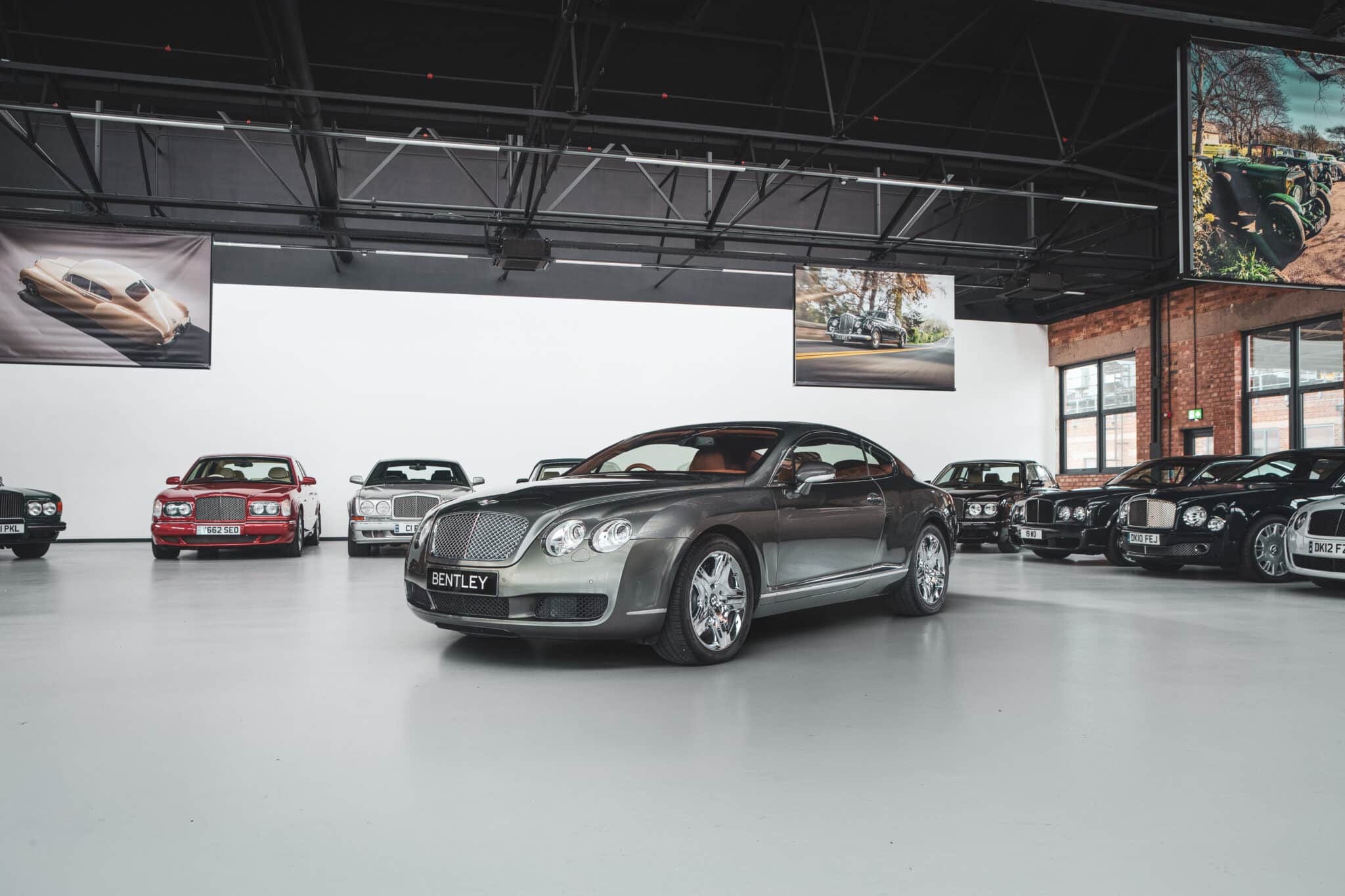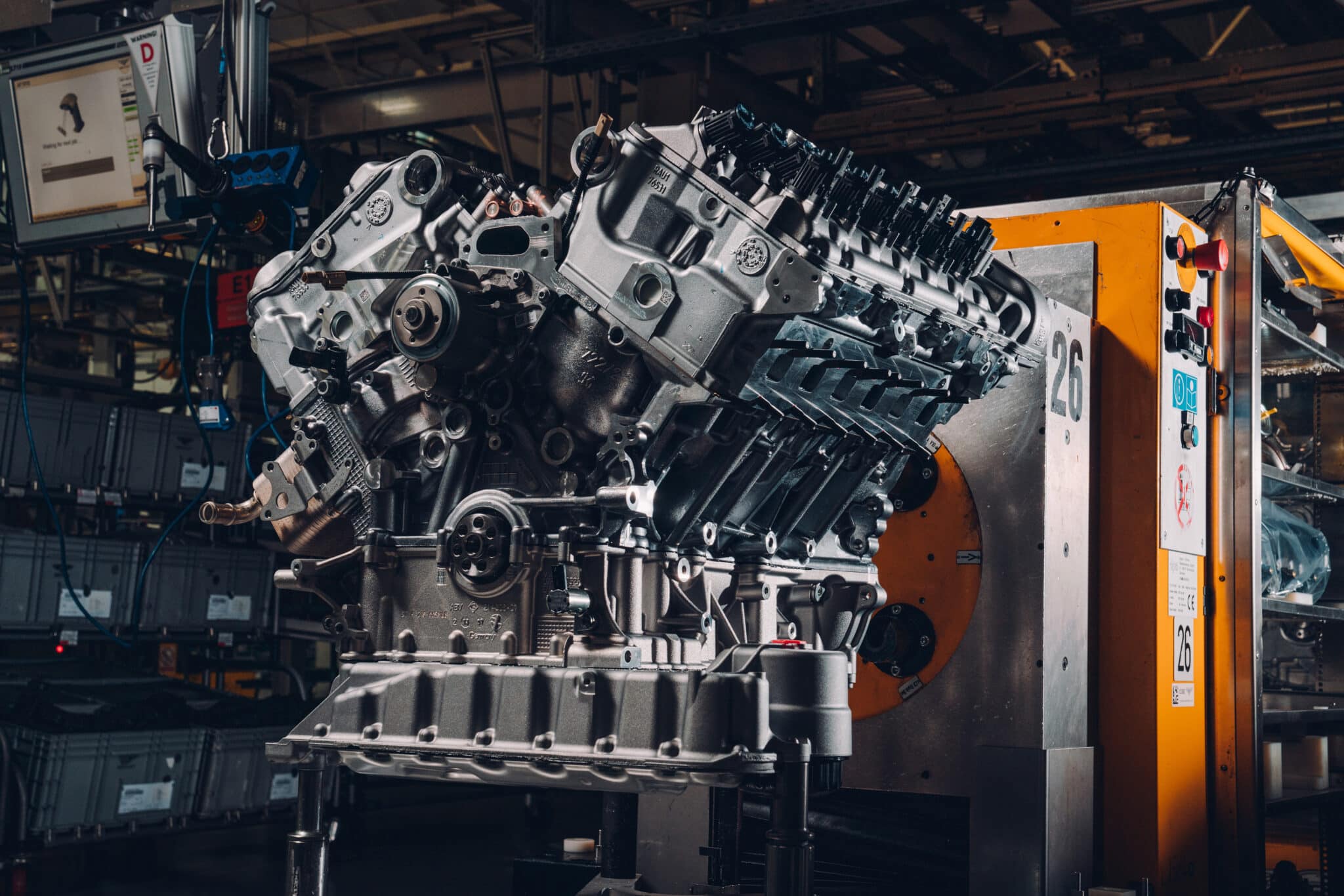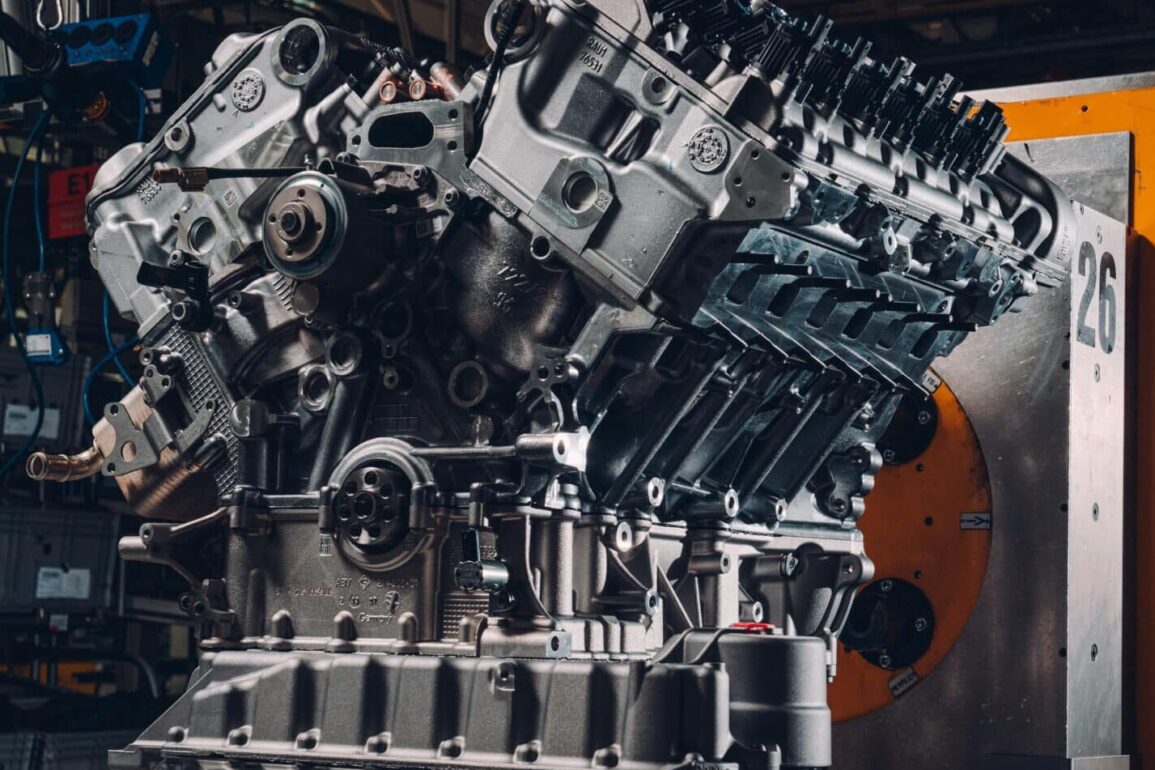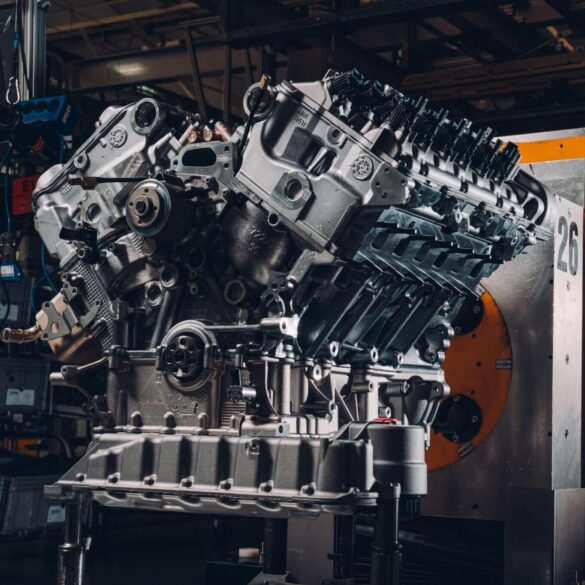Bentley Ends Production of W12 Engine
- After two decades of production, Bentley has commemorated a milestone by handcrafting its final twelve-cylinder (W12) engine.
- The Bentley W12 engine debuted for the Continental GT in 2003, while the second-gen W12 saw action in the Bentayga, Continental GT/GTC, and Flying Spur.
- The British automaker has announced 120 “Speed Edition 12” variants of the Bentayga, Continental GT, and Flying Spur as the W12’s final hurrah.
Take a Bow, W12
Bentley hand-built its final W12 engine in July 2024 as the automaker turns a new leaf toward its Beyond100 strategy. Announced in 2020, Beyond100 is Bentley’s commitment to sustainable mobility and carbon-neutral company operations. The automaker unveiled its all-electric EXP 100 GT Concept in 2019 but soon retraced its steps and committed to hybridization, slightly pushing back its initial 2030 all-electrification target.
With a revised plan on the horizon, Bentley has announced the end of production of its famed W12 engine. The automaker treated its staff to a commemorative lunch at the Bentley Heritage Garage to celebrate 20 years of W12 goodness.
“The W12 has propelled our cars and business forward at an exceptional speed and will go down as one of the most important innovations in our illustrious history,” said Dr. Matthias Rabe, Member of the Board for R&D at Bentley Motors.
First introduced for the 2003 Continental GT, the craftspeople at Bentley have handbuilt more than 100,000 W12 engines since then. “Today marks the end of a development journey that our R&D and manufacturing colleagues should be extremely proud of over the years,” Dr. Rabe added.


Iron Fist In a Velvet Glove
Bentley’s iconic W12 engine began life as two narrow-angle V6 engines with a common crankshaft. The design made it 24 percent more compact than a conventional V12 engine, meaning it could be mounted closer to the middle of the car.
Equipped with a new intake, exhaust, intercooler, and turbocharging hardware, the W12 engine that debuted in the 2003 Continental GT produced 552 horsepower and 479 lb-ft. of torque at 1,600 to 6,100 rpm.
The first-gen Continental GT’s svelte lines, all-wheel drivetrain, and the tidal wave of torque from its magnificent W12 kicked open the door of the high-performance grand touring era. With its ZF six-speed transmission, the original 2003 Continental GT could rush from zero to 60 mph in 4.7 seconds and reach a top speed of 190 mph, a noteworthy feat for a large yet ultra-plush grand touring coupe.
On the strength of the W12, the Continental GT delighted Bentley enthusiasts for over two decades and four generations. The first generation stayed in production from 2003 until 2011, with closely related models such as the Continental GT Convertible, Continental Flying Spur, Continental GT Speed, and Supersports joining the lineup during that span.
The Continental GT model range, with its famed W12, would open new global markets for the British coachbuilder, including the Far East, while cementing its reputation as a purveyor of fine luxury cars in existing markets like the United States and the Middle East.
“The engine’s introduction helped change the face of the company almost overnight and so will go down in history as a true game changer,” said Andreas Lehe, Member of the Board for Manufacturing at Bentley Motors. “We should feel very proud to have designed, developed, and manufactured such an icon in Britain for such a long period of time.”

Second-Gen Bentley V12: More of Everything
The second-generation 6.0-liter twin-turbo W12 engine debuted for the 2015 Bentley Bentayga and found its way to the Continental GT, Continental GT Convertible, and Flying Spur. The new engine featured twin-scroll turbocharging, two fuel systems, and cylinder deactivation that shuts down a bank of six cylinders to improve fuel economy at slower speeds.
Every W12 is handbuilt at the Bentley factory in Crewe, requiring 2,600 separate parts and seven hours for each engine. The meticulous process includes pairing the pistons and connecting rods in balanced sets to “fractions of a gram” to ensure the engine delivers optimum power, reliability, and smoothness. One engine is run over an extended test cycle every week and then stripped for inspection.
Succeeding versions of the W12 enjoyed numerous improvements, including a 34 percent increase in power, 54 percent more torque, and up to 25 percent lower emissions.
Record-Setting Credentials
Although initially intended for grand touring duties, Bentley’s W12 engine found its way into the record books on multiple occasions. Four-time World Rally Champion Juha Kankkunen claimed the World Ice Speed Record in a Continental GT in 2007, hitting 199.98 mph on the frozen sea of the Bay of Bothnia.
Kankkunen did it again in 2011 and raised the bar onboard a 621-horsepower Continental Supersports Convertible, reaching 205.48 mph to beat his previous ice record. In 2018, racing driver Rhys Millen set a production SUV record at Pikes Peak, Colorado, finishing the 12.42-mile course in 10 minutes and 49.9 seconds, about two minutes faster than the previous record.
Millen returned in 2019 with a Continental GT Speed W12, setting a new Pikes Peak production car record of 10 minutes and 18.488 seconds, averaging 70 mph and beating the previous record by 8.4 seconds.
Meanwhile, the W12-powered Mulliner Batur goes down in history as the ultimate Bentley grand tourer with its 740 horsepower W12 engine. It’s also one of the most exclusive, with only 18 coupes and 16 convertibles in the order books.
Bentley Speed Edition 12
Bentley will make 120 units of the Speed Edition 12, the swansong of the W12 engine. The package is available for the Bentayga, Continental GT, Continental GT Convertible, and Flying Spur.
It includes commemorative Edition 12 badging, treadplates, custom seat embroidery, fascia inlays, and a numbered engine plaque. Owners also get a custom scale model of the W12 engine block, a fitting souvenir to the powerplant that defined the Bentley driving experience.
Bentley Ultra Performance Hybrid
Succeeding the W12 crown is Bentley’s Ultra Performance Hybrid powertrain. It debuted in the 2025 Continental GT Speed and combines the best of both worlds: a twin-turbocharged 4.0-liter V8 and an “electrocharging” hybrid system to produce 771 horsepower and 738 lb-ft. of torque (782 PS and 1,000 Nm), more than any W12 and the highest output ever offered in a Bentley.
More impressive is it produces just 50 g/km of CO2 despite having all that heave. The good news is every new Bentley will be available as a hybrid, and the automaker promises an undiluted driving experience that has endeared since W.O. Bentley started making “a fast car, a good car, the best in its class” a reality in 1919.
Alvin Reyes is an Automoblog feature columnist and an expert in sports and performance cars. He studied civil aviation, aeronautics, and accountancy in his younger years and is still very much smitten to his former Lancer GSR and Galant SS. He also likes fried chicken, music, and herbal medicine.
Photos & Source: Bentley Motors.



